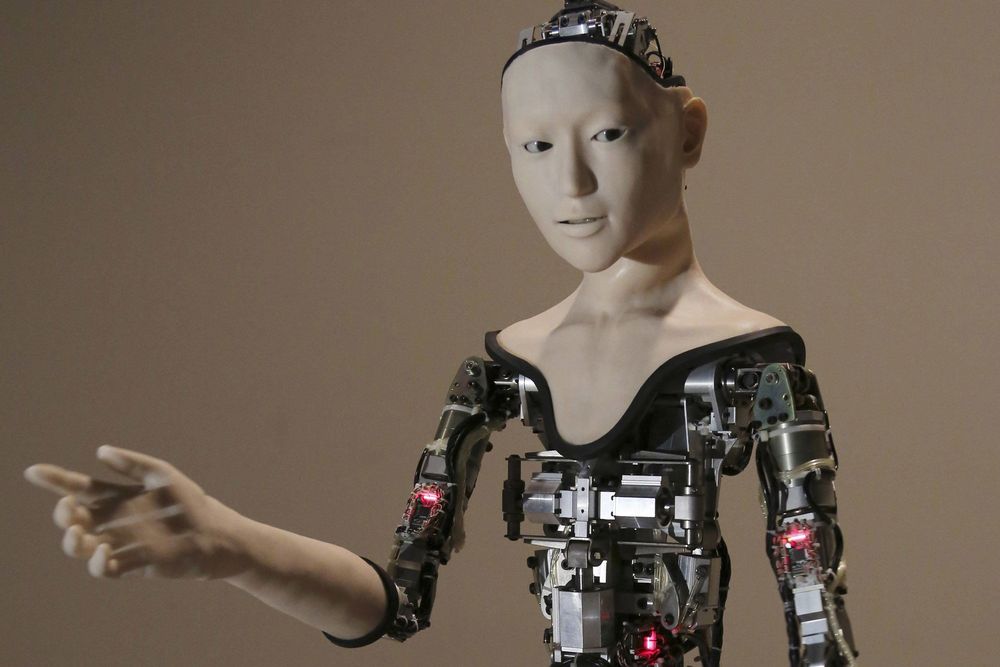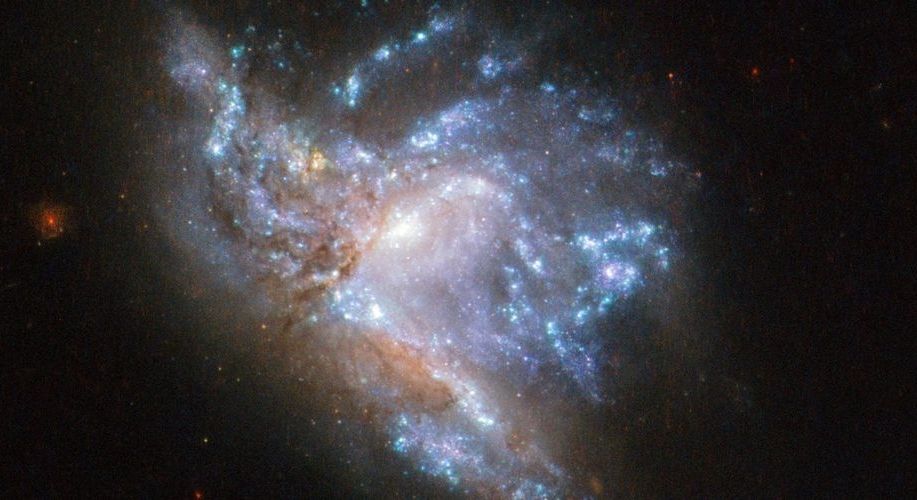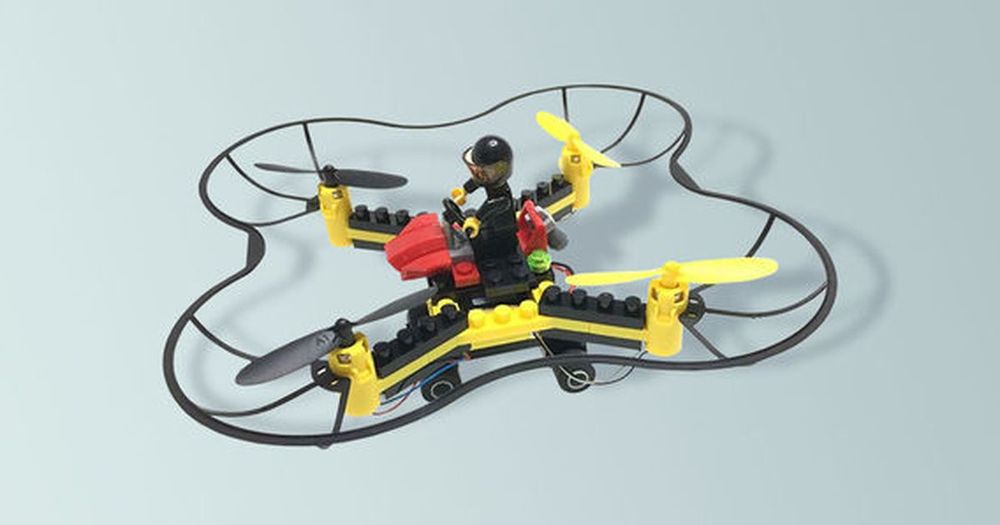Page 8156
Mar 31, 2019
No AI in humor: R2-D2 walks into a bar, doesn’t get the joke
Posted by Michael Lance in categories: humor, robotics/AI
“Artificial intelligence will never get jokes like humans do.”
WASHINGTON (AP) — A robot walks into a bar. It goes CLANG.
Alexa and Siri can tell jokes mined from a humor database, but they just don’t get them.
Continue reading “No AI in humor: R2-D2 walks into a bar, doesn’t get the joke” »
Mar 31, 2019
A New Contender for the Theory of Everything
Posted by Paul Battista in categories: particle physics, quantum physics, space
The most popular contender over the past few decades has been string theory, and the related concepts of superstring theory and M-theory, in which particles are considered as tiny units of one-dimensional string. However, a lesser-known theory has also gained traction; loop quantum gravity (LQG), which attempts to solve the quantum gravity problem by focusing on the very fabric of spacetime, rather than the particles themselves.
In “Quantum Space,” the popular-science writer Jim Baggott lays out the basic principles of LQG for science enthusiasts. The book looks at how loop quantum gravity has emerged by following the work of two of its leading proponents, Carlo Rovelli and Lee Smolin, and assesses where the theory is now, and where it might be going.
Although the concepts are — not surprisingly — mind-boggling, Baggott asks deep questions about the nature of the universe, what space is actually composed of, and the existence of time itself. (The book covers a lot of challenging material, however, and some prior reading may help readers find their way.)
Mar 31, 2019
NASA released a stunning photo showing two galaxies colliding
Posted by Michael Lance in category: space
The galaxies have never before been captured in such detail.
First discovered in 1784 by William Herschel, NGC 6052 was originally thought to be a singular galaxy that simply had an odd shape.
However, scientists eventually figured out that the “oddly shaped galaxy” 230 million light-years away was, in fact, two galaxies in the process of colliding.
Continue reading “NASA released a stunning photo showing two galaxies colliding” »
Mar 31, 2019
This company wants to deliver a baby in space and prepare humanity for a life beyond Earth
Posted by Klaus Baldauf in categories: biotech/medical, education, satellites
What happens when Earth’s resources run out? Well, if science fiction has taught us anything, it’s that humanity will seek a new and habitable planet somewhere in the cosmos on which to keep the species going in perpetuity. When that day comes, we’ll need a viable way to procreate and deliver children in the vastness of outer space.
Enter SpaceLife Origin, a one-of-a-kind tech company that is seeking to make it possible for humans to give birth in the vacuum of space by 2024, a goal titled “Mission Cradle.” While that is its ultimate goal, SpaceLife is also striving to become the first company to “safe-guard human ‘Seeds-of-Life’ in space [Mission Ark] by 2020 [and] make embryo conception in space feasible [Mission Lotus] by 2021,” according to its official website.
The gallery below offers a glimpse at the patent-pending “Ark” designs. Vials of human DNA will be protected within the radiation-shielded spheres that are to be kept on Earth and satellites surrounding the planet. SpaceLife Origin describes this as an insurance policy for the continuation of mankind in case a catastrophe hits and we need to leave in a hurry.
Mar 31, 2019
I ran across this post and thought it interesting
Posted by Tracy R. Atkins in category: mathematics
I am not too sure the math is solid, obviously, but the fact that its been shared over 100k times means people are paying attention and starting to think about the impact.
Mar 31, 2019
Artificial intelligence can predict premature death
Posted by Genevieve Klien in categories: neuroscience, robotics/AI
Summary: Machine learning significantly improves the accuracy of predicting premature deaths, from all causes, in a middle-aged population compared with more traditional models. Source: University.
Neuroscience News
Mar 31, 2019
Supercomputers help supercharge protein assembly
Posted by Genevieve Klien in categories: biotech/medical, supercomputing
Red blood cells are amazing. They pick up oxygen from our lungs and carry it all over our body to keep us alive. The hemoglobin molecule in red blood cells transports oxygen by changing its shape in an all-or-nothing fashion. Four copies of the same protein in hemoglobin open and close like flower petals, structurally coupled to respond to each other. Using supercomputers, scientists are just starting to design proteins that self-assemble to combine and resemble life-giving molecules like hemoglobin. The scientists say their methods could be applied to useful technologies such as pharmaceutical targeting, artificial energy harvesting, ‘smart’ sensing and building materials, and more.
Mar 31, 2019
Google is hosting a global contest to develop AI that’s beneficial for humanity
Posted by Derick Lee in categories: quantum physics, robotics/AI
The Quantum Flagship was first announced in 2016, and on 29 October, the commission announced the first batch of fund recipients. The 20 international consortia, each of which includes public research institutions as well as industry, will receive a total of €132 million over 3 years for technology-demonstration projects.
One of the most ambitious EU ‘Flagship’ schemes yet has picked 20 projects, aiming to turn weird physics into useful products.


















